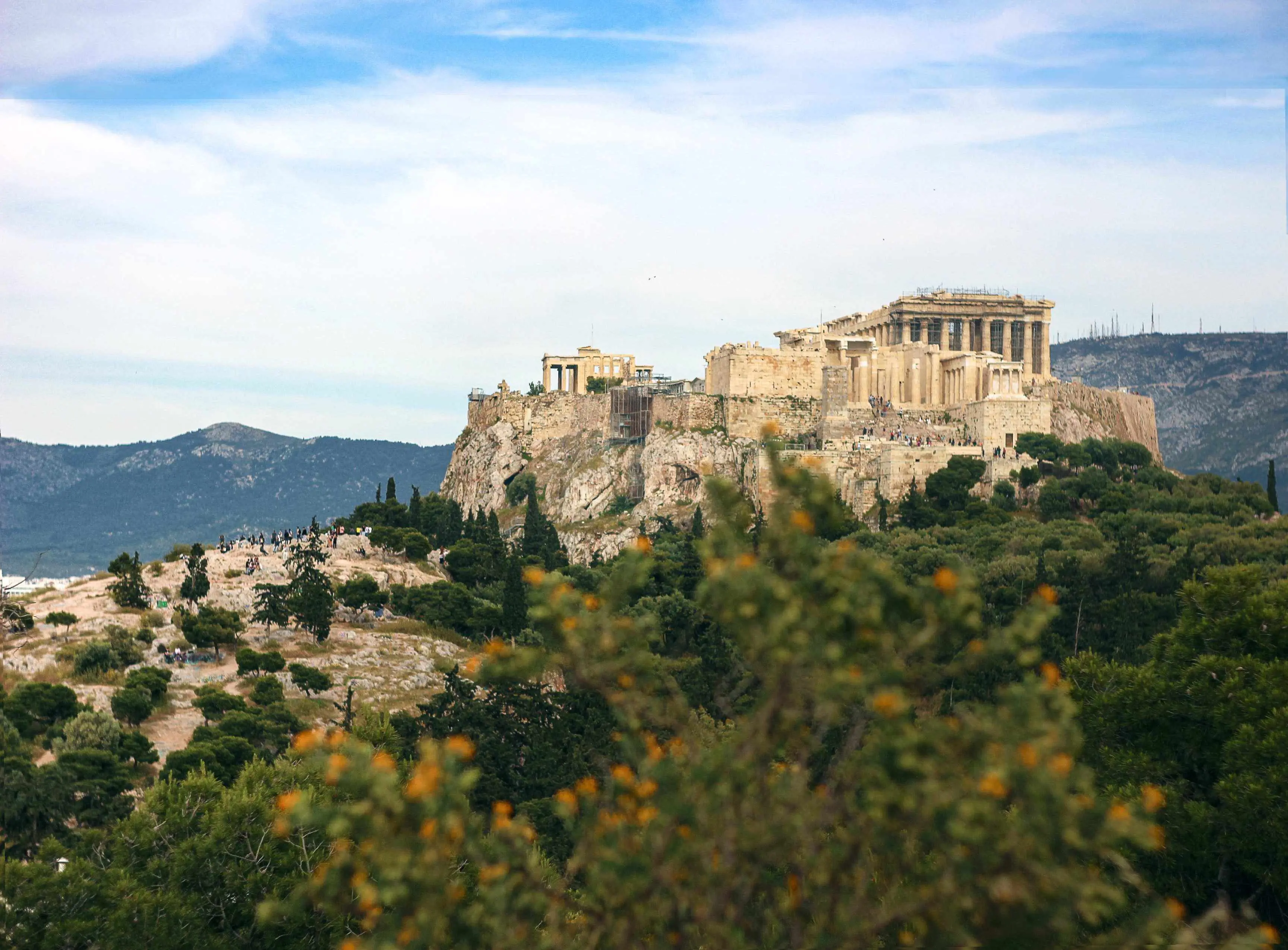In Acts 17, St. Paul confronts the Athenians, particularly the Epicureans, Stoics, and visiting people, who seek novelty, on the Ares Hill about his teaching on Christ.
St. Paul starts with this statement in verses 22-23:
Ἄνδρες, Ἀθηναῖοι, κατὰ πάντα ὡς δεισιδαιμονεστέρους ὑμᾶς θεωρῶ διερόμενος γάρ καὶ ἀναθεωρῶν τὰ σεβάσματα ὑμῶν εὗρον καὶ βωμὸν ἐν ᾧ ἐπεγέγραπτο Ἀγνώστῳ Θεῷ ὃ οὖν ἀγνοοῦντες εὐεβεῖτε τοῦτο ἐγὼ καταγγέλλω ὑμῖν (Men, Athenians, I behold you in all things more religious than others. For passing through and beholding your objects of worship, I even discovered an altar on which had been inscribed, “To an unknowable God” therefore not knowing whom you worship I proclaim Him to you.)
The Athenians had an altar to this unknowable God most likely out of fear of offending this God and incurring wrath. The altar seems more like an insurance policy than an intentional place of worship; the altar is a cart-blanche to push aside divine wrath. They did not have hope in this unknowable God; otherwise, they would have placed their desires in his hands.
Why Hope in God above All Things
Hope in the spiritual life consists in placing one’s intentions and desires (whatever arduous goods a person desires and pursues) in God’s love and mercy.
Today, people have generally placed their hope in things lesser than God: education, family, life plan, friends, churches (as institutions). Look around, and you’ll see that when people place their trust and desires in finite things as ends, they are generally disappointed and discouraged, and sometimes they even despair.
Hope frees people to see a future in and with God, who is love. People should desire God and seek the freedom that comes from seeing him face-to-face in the beatific vision and loving him for his own sake for eternity.
The Athenians in Acts 17 were mostly Epicureans who considered pleasure to be the highest good. The Stoics, on the other hand, placed their hope in universal reason. Neither of those things (reason or pleasure) could ever lead to fulfillment. Through quiet reflection, people quickly realize that nothing finite can fulfill their desires completely.
St. Paul’s Efforts to Inspire Hope in God
St. Paul, in earlier verses of Acts 17, was angered by the idolatrous worship in Athens. He wanted to give the Athenians hope in God, so at the end of his speech, he mentioned the resurrection of the dead. Yet a good portion of the philosophers jeered at St. Paul, while another portion said they would discuss Christ with St. Paul again.
St. Paul succeeded in bringing some people to Christ, including Dionysius the Areopagite and a woman named Damaris.
St. Paul must have placed his hope in God. Otherwise, why would he, knowing that the Athenians did not worship God, still speak to them about the seemingly unknowable God? Paul hoped that God, out of love for the salvation of the Athenians and St. Paul, would give St. Paul the words he needed to show them what St. Paul knew to be true.
People cannot hope in something unknowable. St. Paul attempted to give the Athenians Christian hope.
Why Hope in the God You Know through Christ
God is not a being like human beings; rather, God is that which makes beings be. God is unknowable with reason alone; however, thanks to the Incarnation and witness of Jesus Christ and all those who heard and passed on his witness, people today can know who God is and hope in what he is: love and mercy.
If you place your hope in yourself or reason alone, you will inevitably fall into despair, but if you place your hope in God above all things, then God can accomplish his wonders in your life and the lives of those around you.
How to learn more
To learn more about the Carmelite tradition in general, check out Midnight Carmelite episodes through the player below and hit subscribe to stay up to date!
Note: All Scripture translations in this post are my own.

